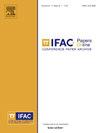Disaggregating Train Delays into Primary and Secondary Components using Gated Graph Convolutional Networks⁎
Q3 Engineering
引用次数: 0
Abstract
This study presents a novel approach for disaggregating aggregated train delays into primary and secondary components using Gated Graph Convolutional Networks (GatedGCNs). We develop a graph-based representation of railway traffic that captures complex spatiotemporal relationships and long-range dependencies. Our method is applied to synthetic delay data generated from an agent-based simulation model of the Austrian railway network. We evaluate the model on classification and regression tasks, demonstrating high accuracy in distinguishing between primary and secondary delays. The classification task achieves 96% accuracy and 0.99 AUC, while the regression task attains an R-squared value of 0.86. These results significantly outperform a naive baseline model. The findings suggest that GatedGCN is a promising method for delay disaggregation and has potential for broader applications in capturing delay propagation processes. However, while the results on synthetic data demonstrate strong performance, further validation on real-world data is essential to confirm its practical applicability.
利用门控图卷积网络将列车延迟分解为主要和次要组成部分⁎
本研究提出了一种利用门控图卷积网络(GatedGCNs)将列车延迟分解为主分量和次分量的新方法。我们开发了一种基于图形的铁路交通表示,可以捕获复杂的时空关系和长期依赖关系。我们的方法应用于奥地利铁路网基于智能体的仿真模型生成的综合延误数据。我们在分类和回归任务上评估了模型,证明了在区分主要和次要延迟方面的高准确性。分类任务的准确率为96%,AUC为0.99,回归任务的r平方值为0.86。这些结果明显优于朴素基线模型。研究结果表明,GatedGCN是一种很有前途的延迟分解方法,在捕获延迟传播过程方面具有更广泛的应用潜力。然而,虽然在合成数据上的结果显示出较强的性能,但要确认其实际适用性,还需要进一步在实际数据上进行验证。
本文章由计算机程序翻译,如有差异,请以英文原文为准。
求助全文
约1分钟内获得全文
求助全文
来源期刊

IFAC-PapersOnLine
Engineering-Control and Systems Engineering
CiteScore
1.70
自引率
0.00%
发文量
1122
期刊介绍:
All papers from IFAC meetings are published, in partnership with Elsevier, the IFAC Publisher, in theIFAC-PapersOnLine proceedings series hosted at the ScienceDirect web service. This series includes papers previously published in the IFAC website.The main features of the IFAC-PapersOnLine series are: -Online archive including papers from IFAC Symposia, Congresses, Conferences, and most Workshops. -All papers accepted at the meeting are published in PDF format - searchable and citable. -All papers published on the web site can be cited using the IFAC PapersOnLine ISSN and the individual paper DOI (Digital Object Identifier). The site is Open Access in nature - no charge is made to individuals for reading or downloading. Copyright of all papers belongs to IFAC and must be referenced if derivative journal papers are produced from the conference papers. All papers published in IFAC-PapersOnLine have undergone a peer review selection process according to the IFAC rules.
 求助内容:
求助内容: 应助结果提醒方式:
应助结果提醒方式:


